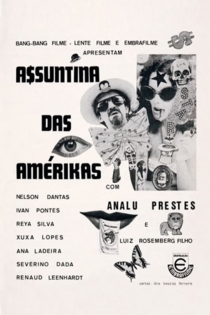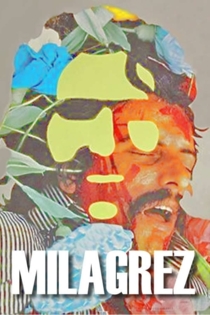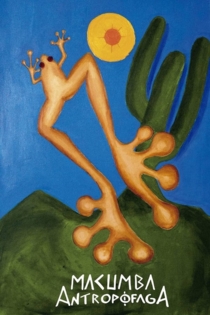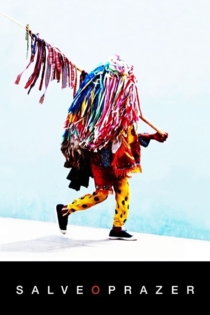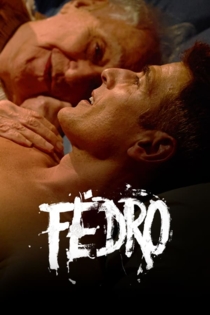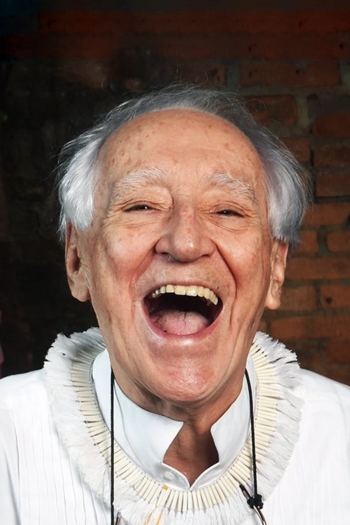
José Celso Martinez Corrêa
1937 (88 лет)Infinita Tropicália
Adilson Ruiz
Chiquinho Brandão, Gilberto Gil
Tropicália was a Brazilian cultural movement that occurred between 1967 and 1968, inspired by Oswald de Andrade's anthropophagic ideals, pop art and the concretism. Twenty years later, this film revisits the movement and shows that Tropicalismo will never die.
Infinita Tropicália
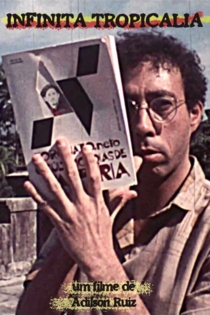
How Do You See Me?
Felipe Bond
Cássia Kis Magro, Tonico Pereira
How Do You See Me? is a Brazilian documentary feature that entwines both experienced actors and beginners to explore the hardships and the happiness that are inherent to the job when detached from the glam and glitz of the gossip industry, creating a diverse and comprehensive mosaic of what it means to be an actor in Brazil, a country so full of contradictions. The film brings forward a reality that the masses usually don't get to know: the men and women moved by a deep passion for acting and touching people. With Julio Adrião, Matheus Nachtergaele, José Celso Martinez, Cássia Kis, Nanda Costa, Babu Santana, Luciano Vidigal and Letícia Sabatella, among others.
How Do You See Me?
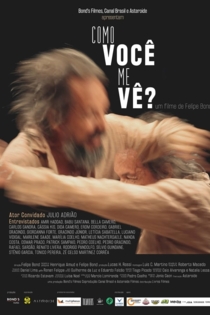
Palavra (En)Cantada
Helena Solberg
Adriana Calcanhotto, Arnaldo Antunes
Palavra (En)Cantada makes a journey in the history of the Brazilian songbook with a look at the relationship between poetry and music, sewing testimonials of great names of our culture, musical performances and amazing research of images.
Palavra (En)Cantada
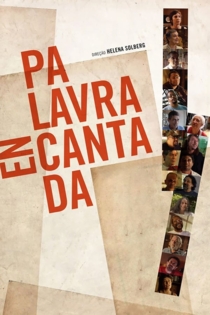
Máquina do Desejo
Lucas Weglinski, Joaquim Castro
José Celso Martinez Corrêa, Paulo Maluf
In six decades, Teatro Oficina has done more than revolutionize theatrical language in the country: the aesthetic influence of José Celso Martinez Corrêa's company extends from Tropicalism to the renewal of Brazilian audiovisual languages from the 1960s onwards. The film revisits a story that it involves personalities such as Caetano Veloso, Glauber Rocha, Lina Bo Bardi, Chico Buarque and Zé do Caixão, brings together scenic art, ecology, architecture and sexuality, and mixes art and life in the search for a Brazilian based language.
Desire Machine: 60 Years of Teatro Oficina
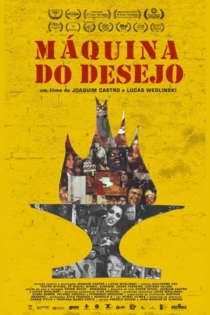
Paulo Autran – O Senhor dos Palcos
Marco Abujamra
Paulo Autran, Adolfo Celi
A portrait of the evolution of theater in the 20th century and a deep reflection on the art of acting through the career of Paulo Autran (1922-2007), one of the greatest actors in Brazil.
Paulo Autran – O Senhor dos Palcos
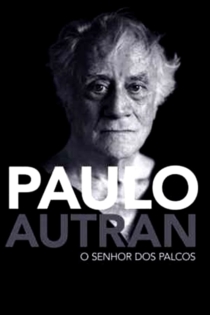
25
José Celso Martinez Corrêa, Celso Luccas
Filmed in 16 mm, 25 (Vinte Cinco) is a production that involved the collaborative effort from people from Brazil, Mozambique, Portugal and France. It follows the decolonisation process of Mozambique (the aftermath of the colonial war and of the fall of the fascist dictatorship in Portugal, which collapsed on the 25th of April 1974) and the geopolitical organisation of both Africa and Mozambique (that became independent in the 25th of June, 1975.)
25
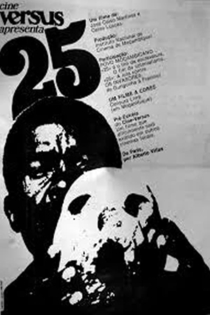
Glauber Rocha - The Movie, Brazil's Labyrinth
Silvio Tendler
Glauber Rocha, Orlando Senna
Documentary about Brazilian filmmaker Glauber Rocha, one of the most important names in the Cinema Novo, with interviews with some of his friends and colleagues.
Glauber Rocha - The Movie, Brazil's Labyrinth
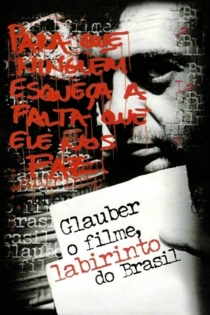
Evoé! Retrato de um Antropófago
Tadeu Jungle
José Celso Martinez Corrêa, Maria Alice Vergueiro
A film that mixes labyrinthine recent testimonies and historical images of the career of the tropicalista director, actor and playwright Zé Celso, of Teatro Oficina, one of the greatest personalities of the Brazilian arts of all time. The documentary acquired its main verb in four trips to key points in the trajectory of Zé: Bahia badlands, Cururipe Beach in Alagoas (where Bishop Sardinha was devoured), Epidaurus and Athens in Greece and his apartment in São Paulo.
Evoé: Portrait of an Anthropophage
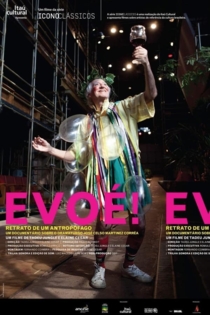
Tropicália
Marcelo Machado
Gilberto Gil, Caetano Veloso
Set against the turbulent atmosphere of the 1960s, Tropicália is a feature length documentary exploring the Brazilian artistic movement known as Tropicália, and the struggle its artists endured to protect their right to freely express revolutionary thought against the traditional Brazilian music of that time.
Tropicália
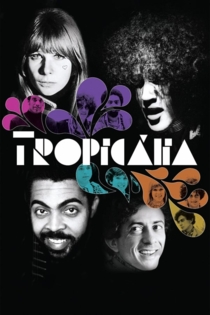
O Rei da Vela
José Celso Martinez Corrêa, Noilton Nunes
Maria Alice Vergueiro, Renato Borghi
Filming of the historical montage of Oswald de Andrade's play, where decadent millionaires, depraved children, corrupt and implacable capitalists are the characters interpreted by the Grupo Oficina, in a celebrated theatrical performance from 1967, fundamentally recorded in 1971 and released only in the 1980s.
The King of the Candle
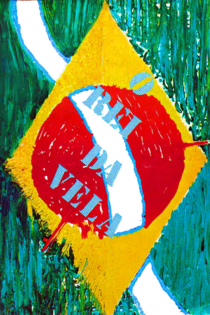
Pitanga
Camila Pitanga, Beto Brant
Antônio Pitanga, Camila Pitanga
This documentary investigates the aesthetic, political and existential trajectory of emblematic Black Brazilian actor Antônio Pitanga. He career spans over five decades, and he has worked with iconic Brazilian filmmakers Glauber Rocha, Cacá Diegues and Walter Lima Jr. He was a prominent figurehead and outspoken activist during the Brazilian dictatorship, a period of unrest in Brazilian cinema. Pitanga deep dives into the world of Antônio and the history of Brazil. The documentary was directed by his daughter Camila Pitanga, one of widely recognised faces in Brazilian television and cinema right now. The film is also a poem, and a tender ode to fatherhood.
Pitanga
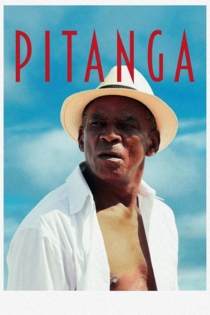
A$$untina das Amérikas
Luiz Rosemberg Filho
Nelson Dantas, Analú Prestes
A$$untina of the Amerikas is a musical comedy of a prostitute that, in 24 hours, wakes up, fights her mother, puts her son in anarchy, has a date with Santa Claus, a blue bear and two girlfriends. Then she finally meets her old millionaire lover. They spend their time to talk about everyday life and make love. Based on the novels of Fernando Henrique Cardoso and Wilhelm Reich.
A$$untina of the Amerikas
